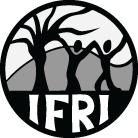Assessment of Certification Programs in Tropical Forest Landscapes- Project Summary
This is an ongoing project within the University of Michigan’s School of Natural Resources and Environment (SNRE), that is part of a broader 2-year research collaboration between CCAFS and researchers at IFRI and SNRE to study the governance of mitigation in agriculture and forest landscapes. The first part of the project will include an in depth literature review of the various certification programs in order to build a framework to analyze the success of these programs and their impact on agricultural sustainability. Then, the next steps will be analyzing two certification programs: palm oil (via the Roundtable on Sustainable Palm Oil) in Indonesia and cattle (via the Sustainable Agriculture Network) in Brazil. The data will be collected in country by our team during the summer of 2013 and involve semi-structured interviews with various stakeholders. The data collected will be synthesized into a final report for CCAFS in 2014.
Objective:
The objective of the project is to answer the question: Are commodity certification programs a viable route to enhanced agricultural sustainability in tropical forest landscapes?
This question will be answered by asking:
1. What are the features of certification programs that lead to enhanced sustainability?
2. What are the incentives and disincentives for participation in a certification program?
3. What are the key challenges and barriers to program success?
4. What are the (expected or actual) economic, environmental and social impacts of certification programs?
5. What are the lessons for the design and improvement of new and existing programs?
Upcoming:
We will be updating this page with more information as we finalize the project. Also, be sure to check back as we will be blogging and tweeting from Brazil and Indonesia this summer with updates, photos and what we’re discovering in the field.
News
IFRI Special Issue Collaboration
(17/09/2016)
FLARE Announces Keynote Speakers

